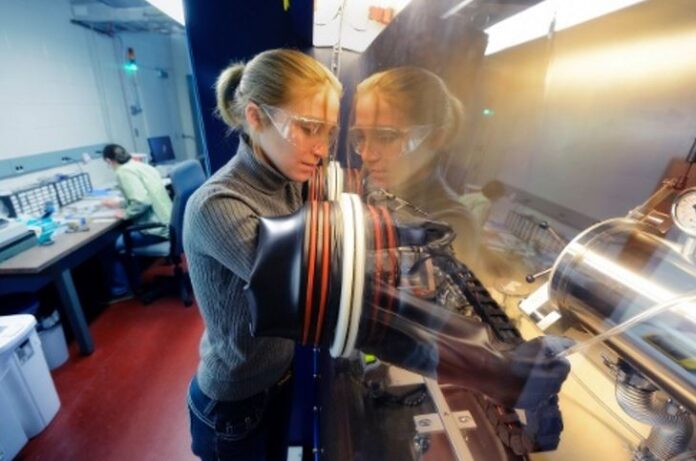
Virginia Tech’s College of Engineering continues to climb up the ranks of engineering schools based on research expenditures. The college rose to eighth place, up from ninth last year, on the National Science Foundation’s (NSF) report of research expenditures.
The recently released survey, reporting on figures for fiscal year 2014, shows the school spent $228.5 million on research, up from $214.4 million in 2013.
“The success we have had in attracting research funds to the College of Engineering is testament to the talents, dedication and ingenuity of our faculty, staff and students,” said Jack Lesko, associate dean for research and graduate studies in the College of Engineering.
Overall, Virginia Tech ranked No. 39 in the NSF’s annual survey of higher education research with more than $513 million in total research spending. Virginia Tech remains the university with the largest research portfolio in Virginia, and the only one in the top 50.
Virginia Tech’s College of Engineering is furthering research and innovation in numerous areas: cybersecurity, robotics, power electronics, computer visualization, additive manufacturing, embedded technology, autonomous vehicles, biotechnology, nanomaterials, renewable energy, and computer technology — and many others.
The research conducted within the college leads to developments that improve daily life — from better and more reliable cellular service to new and more effective ways to target cancer cells.
Recently, critical research and unprecedented scientific field study exposed a public health emergency in Flint, Michigan. Provost Thanassis Rikakis called the work by Marc Edwards, professor of civil and environmental engineering, and his team of graduate students — a stellar example of Virginia Tech’s vision of what a 21st century land grant university should be doing — research in a real-world context, with Flint as the classroom.
That work is also supported by the Institute for Critical Technology and Applied Science, which is closely aligned with the College of Engineering.
The college also plays a vital role in the renamed and refocused Biocomplexity Institute of Virginia Tech, formerly the Virginia Bioinformatics Institute, which is concentrating efforts on harnessing technology to improve human health and well being.
“We are building an integrated, scientific program that extends understanding of how interacting systems affect life,” said Chris Barrett, executive director Biocomplexity Institute and professor in the department of computer science in the College of Engineering. “The development of tools that can predict, explain, and visualize the behavior of these systems on a massive scale sets Virginia Tech apart from other institutions.”
The college continues to develop new partnerships with private industry, government agencies and others to further developments in nuclear science, autonomous vehicles, unmanned aircraft and other innovations.
Lindsey Haugh


